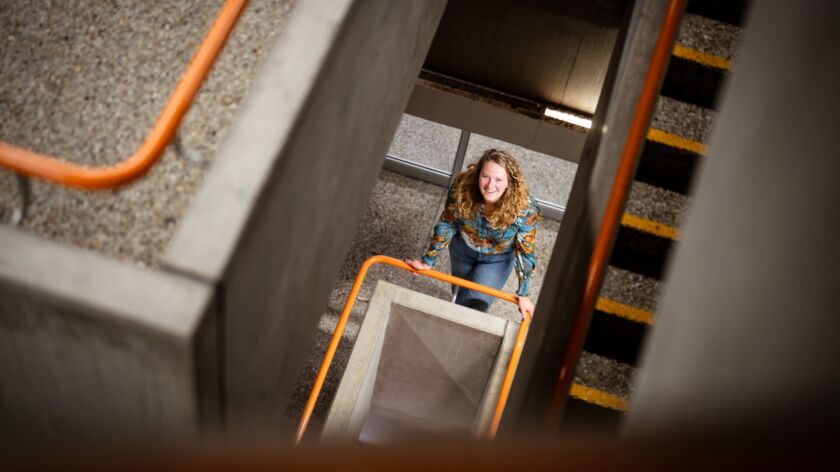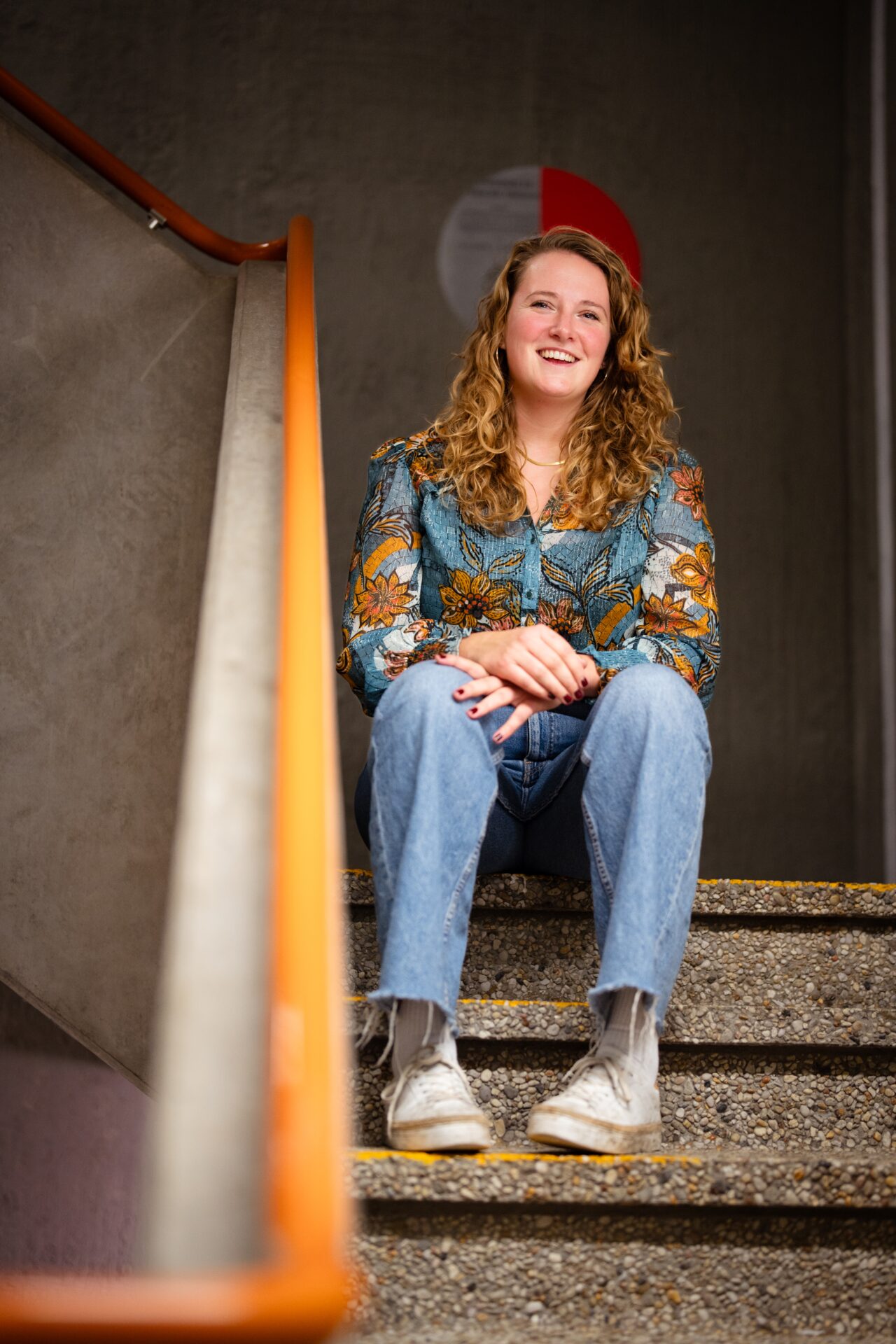Thesis Tales (2): Annabel was gripped by the theme of migration in a Greek refugee camp
-
 Annabel. Foto: Johannes Fiebig
Annabel. Foto: Johannes Fiebig
Students work on their thesis for weeks, months, sometimes years. Once completed, their work is often relegated to a dusty drawer. The Thesis Tales series is devoted to highlighting student research. In episode 2: Annabel Barendse (26), Master’s student in Conflicts, Territories and Identities, did research on framing around migration in documents of the European Commission.
Can you explain what your thesis is about in three sentences?
‘For my Master’s thesis, I examined how the framing of migration in two European Commission documents contributes to broader themes such as populism, the idea of Fortress Europe (a metaphor referring to the European Union’s strict border policy, with migration being severely restricted to control and secure access to Europe, eds.) and the migration crisis. One document is from 2015, the other from 2020. I looked at what certain specific frames do to people’s perceptions of migrants and refugees.’
‘Frames lead to asylum seekers being seen as criminal and a burden’
So what kind of frames are we talking about exactly?
‘In total, I looked at three types of frames. First, the securitisation frame, which states that migration is not good for internal security, and thus legitimises the need for better border security. Then there is the criminalisation frame, which argues that we should build detention centres to detain refugees to protect ourselves from crime. Finally, I looked at the externalisation frame: the idea that it is important to work for security in places like Syria, for example, so that no one has to flee those places anymore. These three frames are not necessarily true, but they are used to convey a certain image of migration and refugees.’
What did you conclude from your research?
‘That this kind of framing really does take place and that it also certainly contributes to populist views. In particular to the idea of Europe as a fortress that only certain people are allowed to enter, and the idea that there is a “migration crisis”. These frames lead to asylum seekers being seen as criminals and as a burden. This in turn reinforces the idea of Fortress Europe and makes it easier to accept the idea that there is a migration crisis.’
How did your interest in this subject develop?
‘During my Bachelor’s studies, I attended a lecture on how refugee camps are run. I found it so interesting that I went on to attend more lectures on refugees and migration. I then spent three months in Greece, near Thessaloniki, where I taught English in a refugee camp and helped with the kids club.’
‘I was shocked by how much the camp resembled a detention centre’
Why were you eager to go there?
‘To see whether I could handle working in such situations. I was shocked by how much the camp resembled a detention centre. There were massive concrete walls all around the camp and security gates that refugees had to pass through to enter and exit the camp. For my Master’s thesis, I visited a refugee camp on Chios (a Greek island, eds.), where the refugees did have more freedom. They did not have to pass through gates, and the camp was surrounded only by a fence with barbed wire.’
How did your research go?
‘If I’m honest, I didn’t like it that much. The academic aspect of doing research is not my thing, and I struggled to keep my topic narrow enough. As a result, I had to add another section just before the summer holidays, because it still wasn’t quite right. That was quite annoying, because it completely changed my thesis at the last moment.’
‘I also found it difficult that this was such a solitary process. You’re always working on your own. I would therefore advise other students to find a thesis buddy with whom you can go to the library together.’
Call
Are or do you know a student with an interesting thesis? Let us know at [email protected].
Did you also have moments when you were proud of yourself?
‘Yes, definitely. Once I could make the link between certain frames and their implications for certain views, such as the idea of Fortress Europe, it felt like everything was coming together. As if I could really add something to the existing science. And when my final research question became clear, I was also proud of myself.’
What struck you most while conducting your research?
‘As mentioned, I compared European Commission documents from 2015 and 2020. You can see that in 2020, the word “asylum seeker” is no longer used, but has been replaced by “the asylum application”. We call this dehumanising the situation, and it makes it easier to take certain measures. It was also interesting to see that the information in European Union documents was often aligned with radical right-wing views. It was very similar to populist ideas. I hadn’t expected that.’
Annabel’s thesis can be found via this link.




